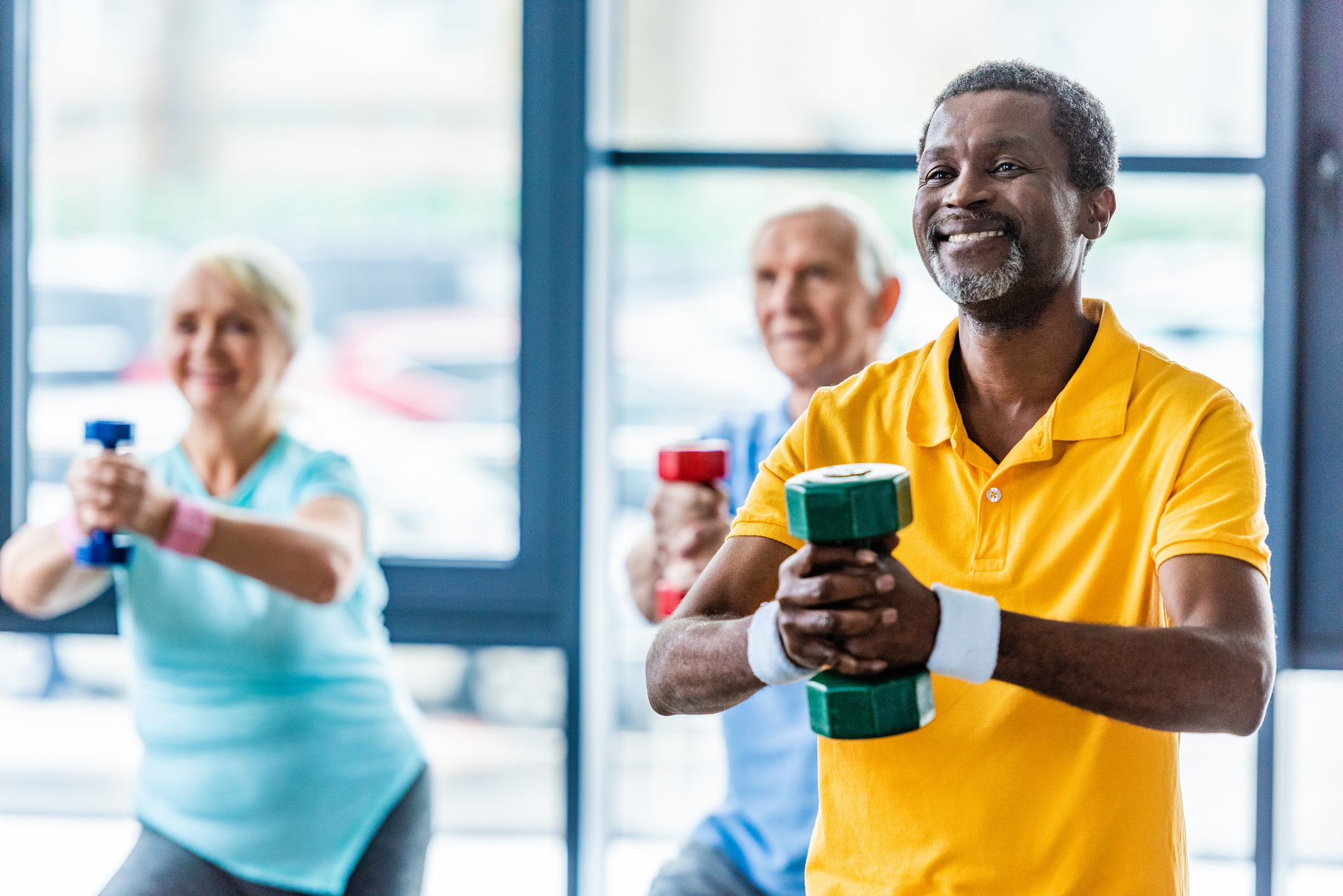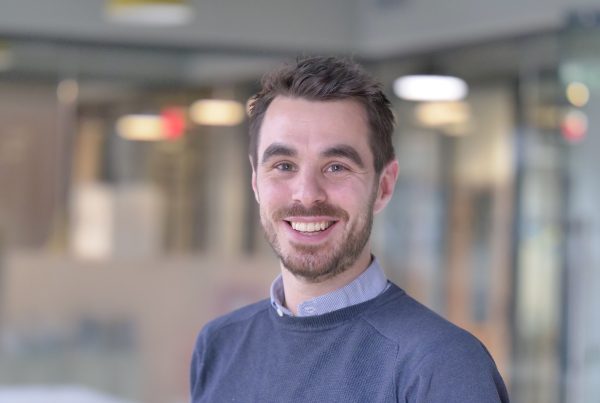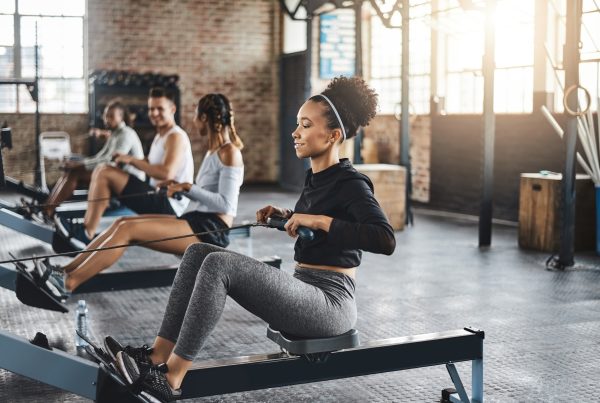- Across the pilot, 11,785 physical activity sessions were delivered successfully to 1,631 participants across 94 sites from April 2022 to March 2024.
- Researchers found that 44% of participants reported a noticeable improvement in the pain management of their condition after attending the sessions for 12 weeks.
- The pilot formed part of an industrial research project to investigate the feasibility of using gyms and leisure centres to support people to manage their MSK conditions with exercise in a community-based setting.
- ukactive and its partners are calling on the Government to invest in scaling the MSK Hubs model to reach more communities and help bring down NHS waiting lists faster.
A pilot to test the potential of gyms, swimming pools and leisure centres to support millions of people suffering musculoskeletal (MSK) conditions has proven a success in a report by the ukactive Research Institute.
MSK conditions are the primary cause of disability among older adults in the UK, affecting more than 20 million people every year. MSK conditions account for 30 million lost work days and up to 30% of GP appointments, with an estimated cost to the NHS of £6.3 billion a year*.
MSK conditions such as persistent back pain, arthritis and pain from knee and hip replacements often lead to poor mobility, loss of functions and mental health issues. Regular physical activity can help MSK sufferers to manage and reduce these symptoms.
In May 2024, 340,816 people were waiting for MSK treatment on the NHS which was a year-on-year rise of 11% from May 2023.
The pilot formed part of an industrial research project funded by UK Research and Innovation (UKRI) as part of the Government’s Healthy Ageing Challenge, to investigate the feasibility of using gyms and leisure centres to reduce the burden on the healthcare system by supporting people to manage their conditions through exercise in a community-based setting.
The evaluation report published today, titled ‘Transforming gyms into community MSK Hubs’, shows that 11,785 physical activity sessions were delivered successfully to 1,631 participants across 94 sites from April 2022 to March 2024.
The researchers found that 44% of participants** reported a noticeable improvement in the pain management of their condition after attending the sessions for 12 weeks.
The ‘MSK Hubs’ model behind the pilot was designed and provided in collaboration between ukactive, Good Boost, Orthopaedic Research UK, ESCAPE-pain, and Arthritis Action, each of which provided services to ensure a flexible offer for users and facilities.
Fifteen leisure operators hosted personalised physical activity sessions focused on progressive exercise rehabilitation and education around how to maintain mobility, reduce pain, and improve health before and after surgery. Participants were supported by instructors both in person and via tailored online guidance for their exercises, whether in the gym, studio, community space or pool.
The researchers found that the general anxiety levels of participants appeared to reduce from the start to when checked at six weeks and 12 weeks, suggesting the sessions not only had a positive impact on pain levels, but also supported mental health and wellbeing.
The pilot demonstrated that for every £1 invested, £5.30 in total social value*** (a measurement using estimated health savings) was created.
The pilot also saw the successful testing of The Active Standard, which demonstrates an operator’s ability to comply with UK laws, regulations, and other formal health and safety requirements. This provides confidence to consumers and medical professionals in the facilities where the sessions are run. The certification from ukactive is due to launch later this year.
As of May 2024, 2.8 million working age people in the UK are reportedly unable to work due to long-term sickness, which has been rising since the summer of 2019. The Health Foundation estimates 3.7 million working age people are currently in work but with a ‘work-limiting’ health condition, with MSK conditions remaining one of the most common forms.
ukactive and its partners are calling on the Government to recognise the success of the pilot and invest in scaling the MSK Hubs model to reach more communities across the whole of the UK. This aligns with existing healthcare hubs and community rehabilitation to relieve pressures on hospitals and support the faster reduction of NHS waiting lists, one of the new Government’s core missions.
Mike Farrar, Chair of ukactive, said: “MSK conditions are putting an increasing burden on our nation’s health and our economy, with millions of people suffering unnecessary pain and many prevented from working or even doing simple everyday tasks.
“The results of this pilot mean the Government has a readymade blueprint to reduce the pressure on the NHS and at the same time improve economic productivity by using gyms and leisure centres to deliver personalised support for people with MSK conditions.
“Our sector should have a lead role in reducing the UK’s pain and this model has the potential to be replicated to support those with other long-term health conditions too.
“We are ready to work with the Government to deploy our sector’s facilities and expertise to get the UK moving again.”
Ben Wilkins, CEO of Good Boost, said: “The MSK Hubs programme has highlighted the leisure sectors’ capacity to deliver a consistent and scalable self-management service for individuals living with MSK conditions and wider multimorbidity. This programme is clearly effective in delivering measurable health improvement across communities.
“The MSK Hubs has shown that this model of delivery in local communities provides a return on investment for venues, and a social return on investment for the nation. We are incredibly excited to be working with the MSK Hubs consortium and wider collaborators to take the learnings to the next steps of roll-out.”
Professor Mike Hurley, Clinical Director for ESCAPE-pain, said: “We are delighted that ESCAPE-pain has been made more accessible by delivering the programme through leisure and community centres. Moving it into the community setting will enable many more people to access and benefit from the programme.”
Noha Al Afifi, Interim CEO of Arthritis Action, said: “It has been a pleasure to develop the educational content for the MSK Hubs programme, both for participants and via the training programmes, to upskill leisure centre staff.
“Our Arthritis Community Groups have brought individuals with arthritis together at a local level, introducing them to the benefits of exercise. It has been rewarding to hear the individual stories of how these physical activity sessions have impacted pain levels and reduced symptoms in participants. Collaboration and accessibility have been key, and we urge the Government to recognise the success of the project and help us to widen its impact”.
To read the full findings and recommendation of the report, click here.
*Data obtained from NHS England Elective Care data and Versus Arthritis’ report, The State of Musculoskeletal Health 2024. The report concludes that MSK conditions accounted for 3.5% of total spending in 2013-2014 and if the proportion has stayed the same – MSK conditions will have accounted for an estimated £6.3bn in 2022-2023.
**Researchers used the threshold for participants meeting the 15% minimal clinically important difference measure (MCID) to feel a noticeable improvement in pain. Overall, 43.9% of participants experienced noticeable improvement. The full range was between 32.5% and 43.9% of participants, depending on the level of pain (average or maximum pain) and the timeframe (six or 12 weeks).
***Calculated using 4GLOBAL’s predictive Social Value Calculator. The social value model measures the value of social outcomes generated through engagement in sport and physical activity and the cost (inputs) of providing opportunities for engagement. For further reading click here.

More People More Active More Often




